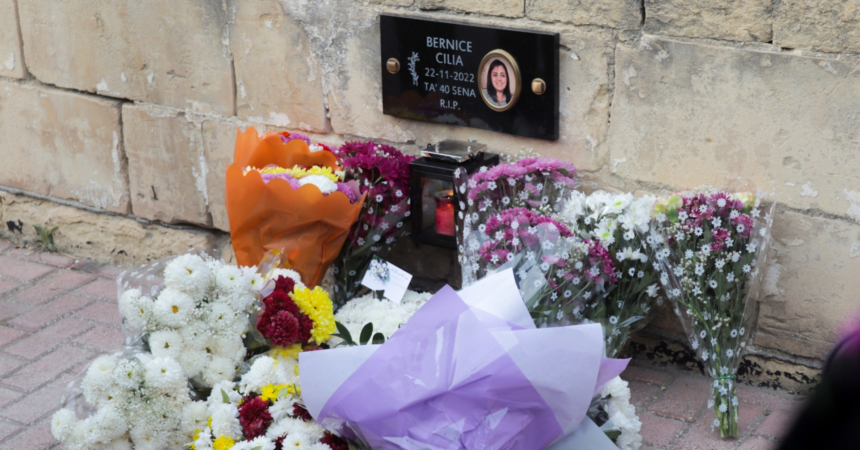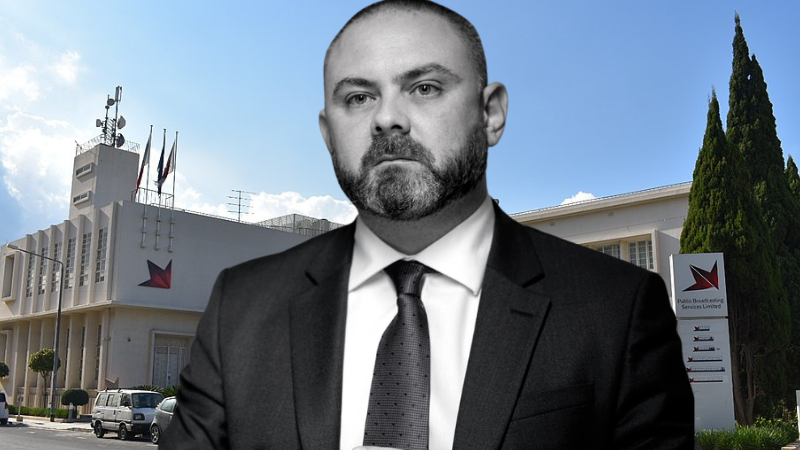Family and friends of Bernice Cassar, murdered one year ago today, gathered in Paola along with activists and NGOs, including Moviment Graffitti, to commemorate her death.
Wellwishers placed flowers at the spot where she was killed and held a short applause in her memory. A family member spoke of how Bernice had done all she could to protect herself but was ultimately failed by the system that was supposed to protect her.
“Bernice was killed a year ago just before 8:00 am. The ground you are standing on is the same where Bernice’s blood was shed,” her sister told the people gathered in Corradino.
Cassar was shot dead in November last year while driving to work at Corradino Industrial Estate, Paola. Her estranged husband, Roderick Cassar, has pleaded not guilty to a charge of murder.
Cassar had repeatedly sought protection from authorities due to her husband’s behaviour.
Her sister went on to describe how Bernice fled her home, filed reports, and sought professional help until she was given a protection order. But it was not enough to keep her safe.
“When this information came to light, everyone was infuriated,” she said.
“Someone must claim responsibility,” she said, adding that today’s vigil is dedicated to all who seek protection and do not find it.
Immediately following Cassar’s death, the government launched an independent inquiry to establish whether any state institutions failed to prevent her killing.
In his conclusions, Judge Geoffery Valenzia noted, among other things, that the entire system for handling domestic violence cases did not work as it should as it did not protect those repeatedly asking for protection.
The reasons were primarily a lack of resources and an increasing workload. This included delayed processing reports, bad or no risk assessments and inadequate or slow responses by Malta’s police.
The courts’ lack of resources and the magistrate’s workload were the reasons behind the delay in cases being assigned and heard.
“There is as much research as you like, and sermons have been delivered for years, but in practice, nothing is done, although it is known that the system is not working,” he observed.
In August, the Ministry for Social Policy and Children’s Rights launched the Multi-Agency Risk Assessment Meeting (MARAM) system, meant to be set up in 2017, which consists of different entities working directly with survivors of domestic violence and their children.
In its first 55 days of operation, MARAM received 74 referrals, amounting to 1.35 per day. Of these, 63 reports were filed by women, three by men and eight cases were related to physical abuse perpetrated by adult children on their parents.
Some media reported the MARAM system was set up following Valenzia’s recommendations, but this is not the case. In his conclusions, Valenzia underscored that it was about time the MARAM system was established, given that it has been in the works since 2017.
According to official statistics reported in the Times of Malta, there remains a backlog of domestic violence cases, which means some victims have to wait for months on end until their aggressor is summoned to court, despite the appointment of a second magistrate to deal with such cases.
The report outlines how, according to official figures, Magistrate Lara Lanfranco had 2,266 pending cases at the end of October, while Magistrate Astrid-May Grima had 17 cases pending before her.
Until the end of October, 210 domestic violence cases were decided, and 28 new cases were added.
There are 18,767 pending criminal cases.













